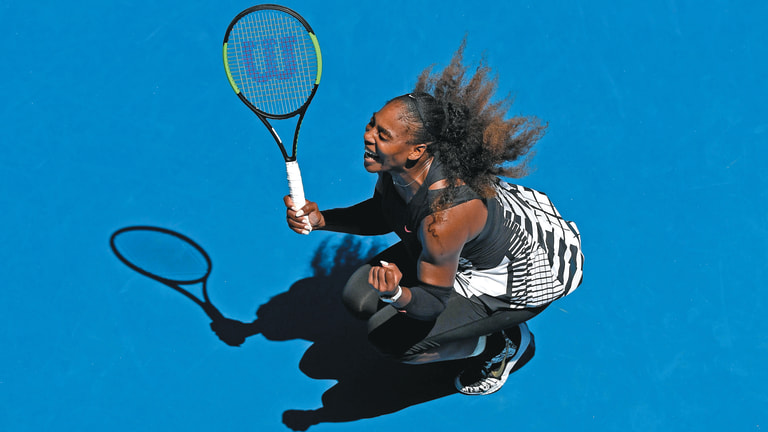The Women's Player of the Decade: Serena Williams
By Dec 12, 2019Lifestyle
The Tennis Traveler: How and where the pros prepared for Tennis Paradise at the BNP Paribas Open
By Mar 06, 2025Social
Spotted: Meghan Markle’s daughter plays Candy Land with ‘auntie’ Serena Williams
By Mar 04, 2025The Business of Tennis
Serena Williams joins ownership group of Toronto Tempo WNBA team
By Mar 03, 2025Pop Culture
David Beckham gifts Serena Williams Inter Miami CF jersey at 2025 season opener
By Feb 26, 2025Pop Culture
Serena Williams, Roger Federer, Aryna Sabalenka and pickleball all featured during Super Bowl LIX
By Feb 13, 2025Pop Culture
Serena Williams performs with Kendrick Lamar at Super Bowl LIX Halftime Show
By Feb 10, 2025Ranking Reaction
Madison Keys reaches new career-high of No. 6, now three American women in Top 6
By Feb 10, 2025Social
Serena Williams gets amped for Super Bowl LIX with Superdome sprint
By Feb 09, 2025Pop Culture
Tennis on Film: Rating King Richard (2021), a top-tier tennis film worthy of its Oscar
By Feb 07, 2025The Women's Player of the Decade: Serena Williams
Regardless of her ranking, the American’s unmistakable impact on the sport, and her unwavering approach to competition, make this a clear-cut selection.
Published Dec 12, 2019
Advertising

The Women's Player of the Decade: Serena Williams
Advertising

The Women's Player of the Decade: Serena Williams
© 2017 Getty Images